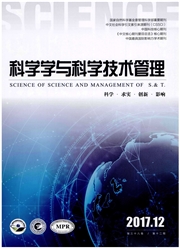

 中文摘要:
中文摘要:
把科研团队的生命周期划分为初创期、成长期、成熟期、衰退期或蜕变期四个阶段。运用案例研究方法探讨科研团队不同生命阶段的特点。在综合三个案例分析结果的基础上提炼出如下结论:初创期,科研团队的领导者是团队发展的规划者与团队成长的指导者,团队初步建立了外部沟通机制,团队文化呈现出参与和协商、和谐与个性自由等特征;成长期,领导者是团队激励者与团队沟通的垂范者,团队建立了定期沟通机制,在激励与奖惩机制上有所发展,团队文化呈现出鼓励个体的主动性和自主权、公平活跃的工作环境等特点;成熟期,团队领导是团队发展的再规划者与新生力量的培养者,团队有良好的管理体制,有规范化的工作程序和工作场所,成员习惯按照既定规章办事;衰退期或蜕变期,团队的创新精神渐渐弱化,管理与领导方式僵硬等。
 英文摘要:
英文摘要:
This paper puts forward life cycle model consistent with the characteristics of research team and life cycle is divided into four stages:start-up stage,growth stage,maturity stage,decline phase or transformation phase.Using a comparative case study method,the paper analyses through three angles:the role of team leader,team culture and management system.Conclusions are extracted from the results of analysis,that is:in the start-up stage,the responsibilities of the team leader are development planning and growth instruction;the team initially established external communication mechanisms;the characteristics of team culture are team participation and consultation,harmony and individual freedom etc.In the growth stage,the responsibilities of the team leader are motivation and communication;A regular communication mechanism was established and motivation and incentive mechanism were developed initially.The characteristics of team culture are encouraging individual initiative and autonomy,fairness dynamic work environment etc.In the maturity stage,the responsibilities of the team leader are planning and training new forces;a good management system was established.The team stressed an open and fair academic atmosphere,the harmonious operation of the organization and so on.
 同期刊论文项目
同期刊论文项目
 同项目期刊论文
同项目期刊论文
 期刊信息
期刊信息
